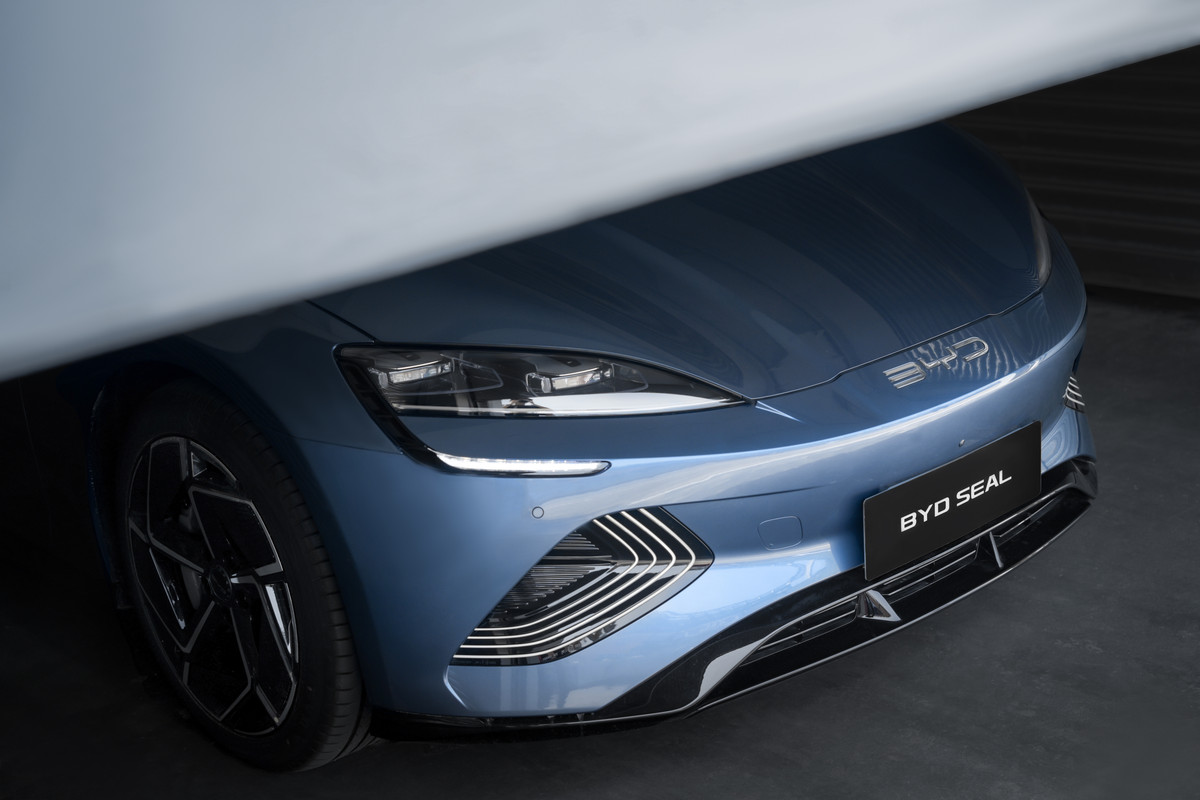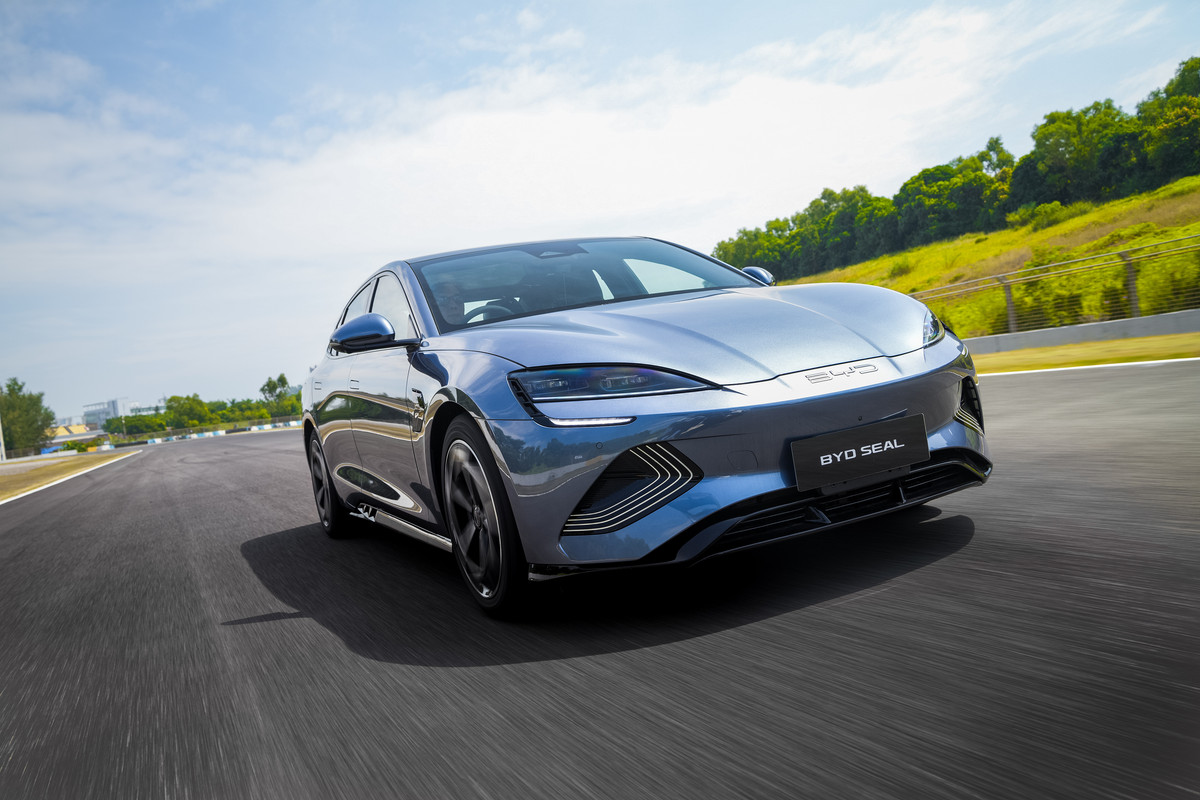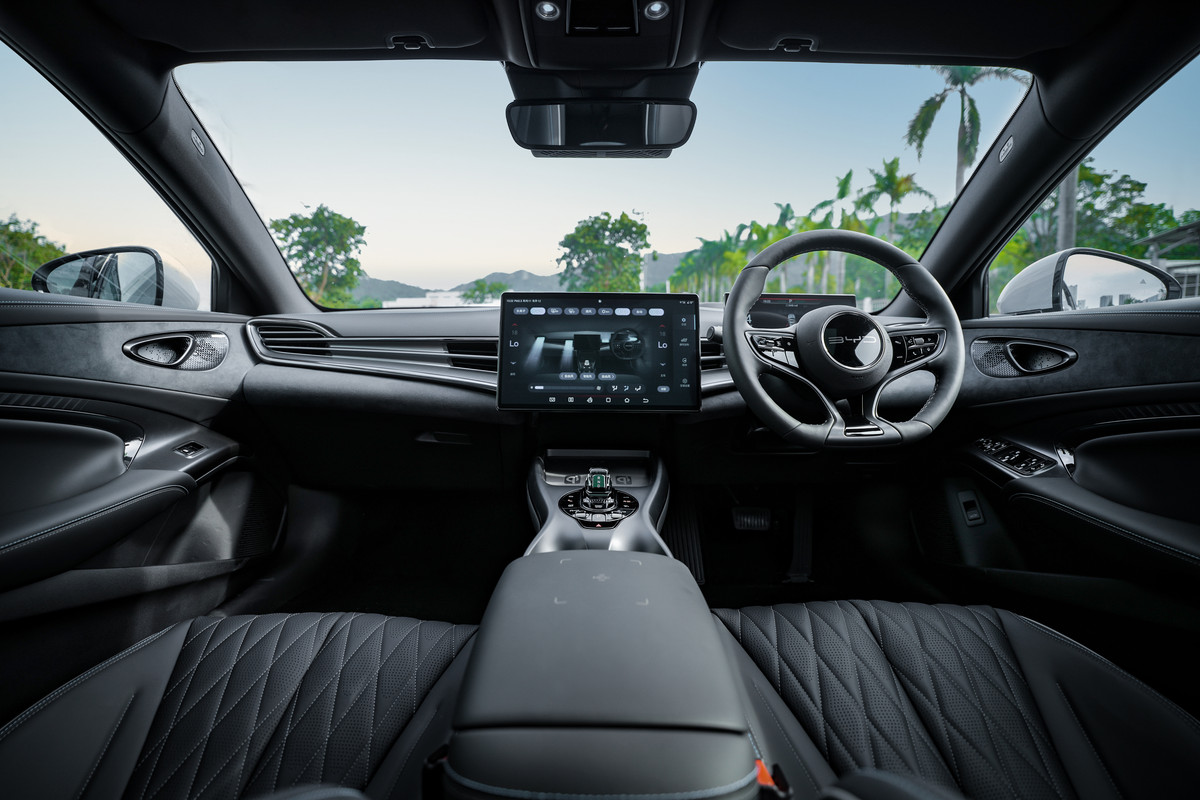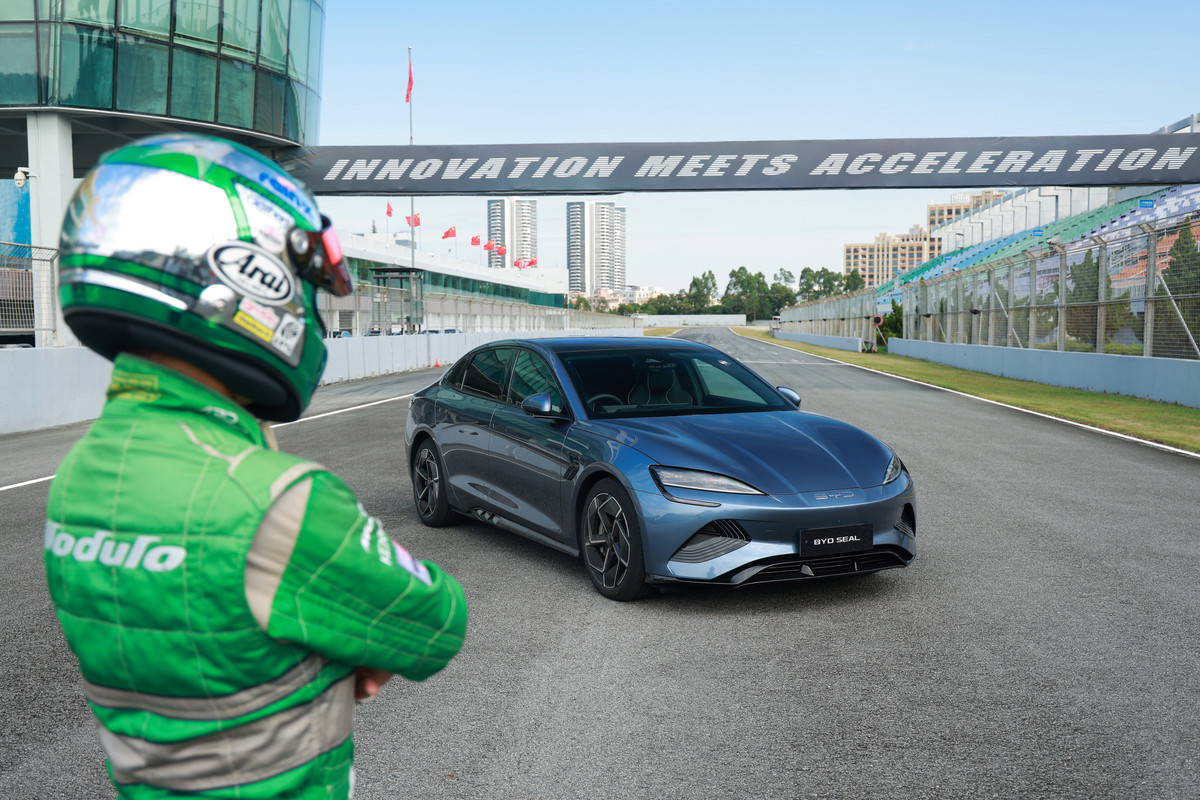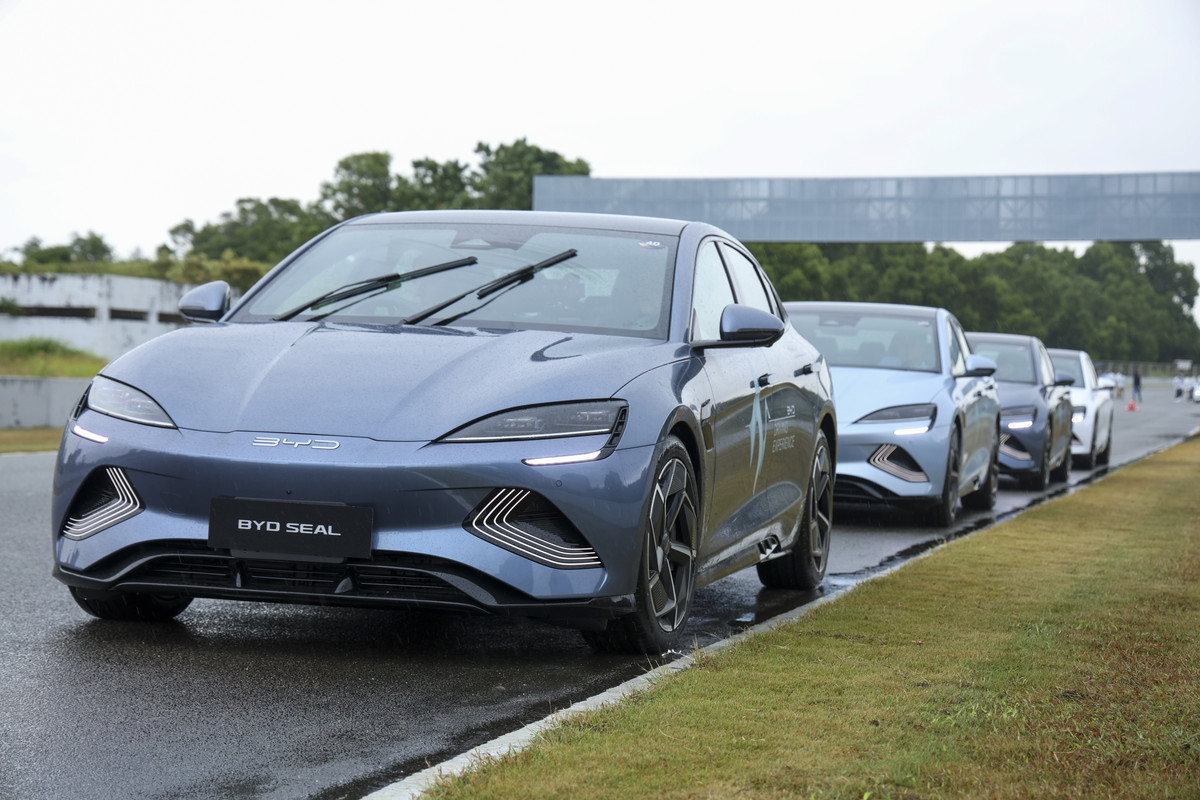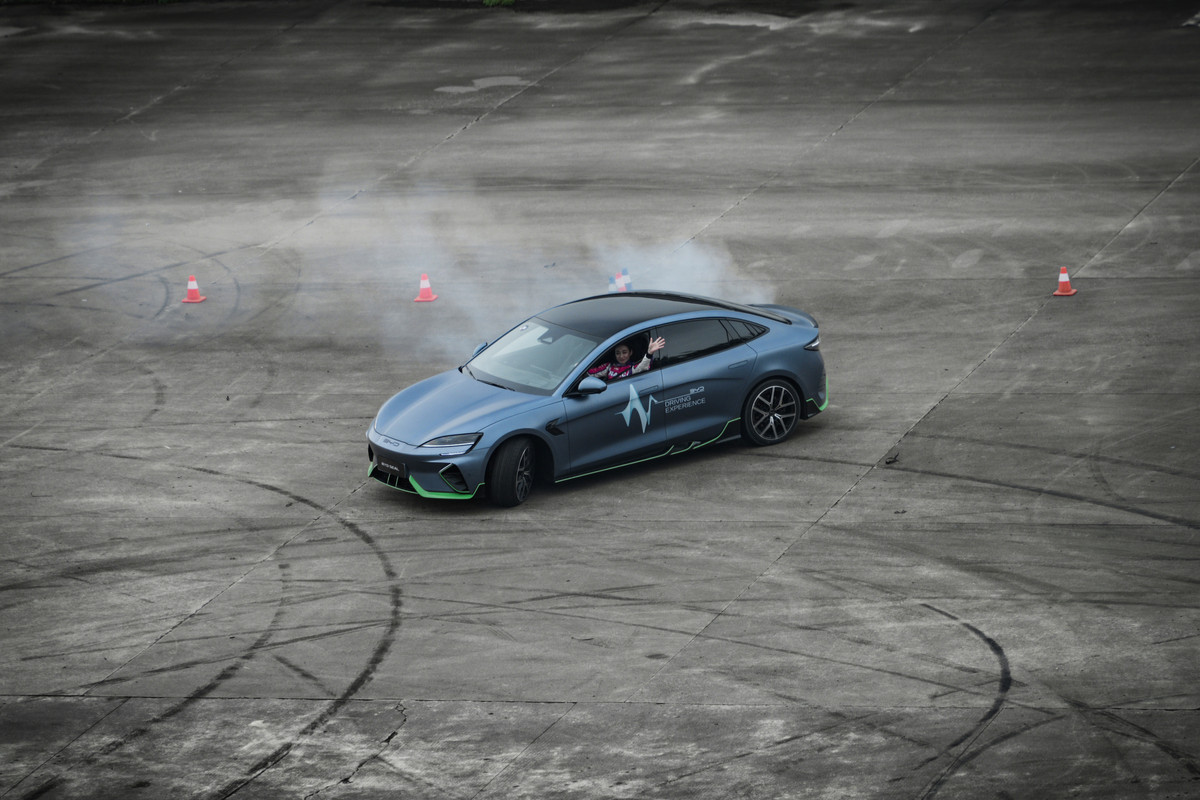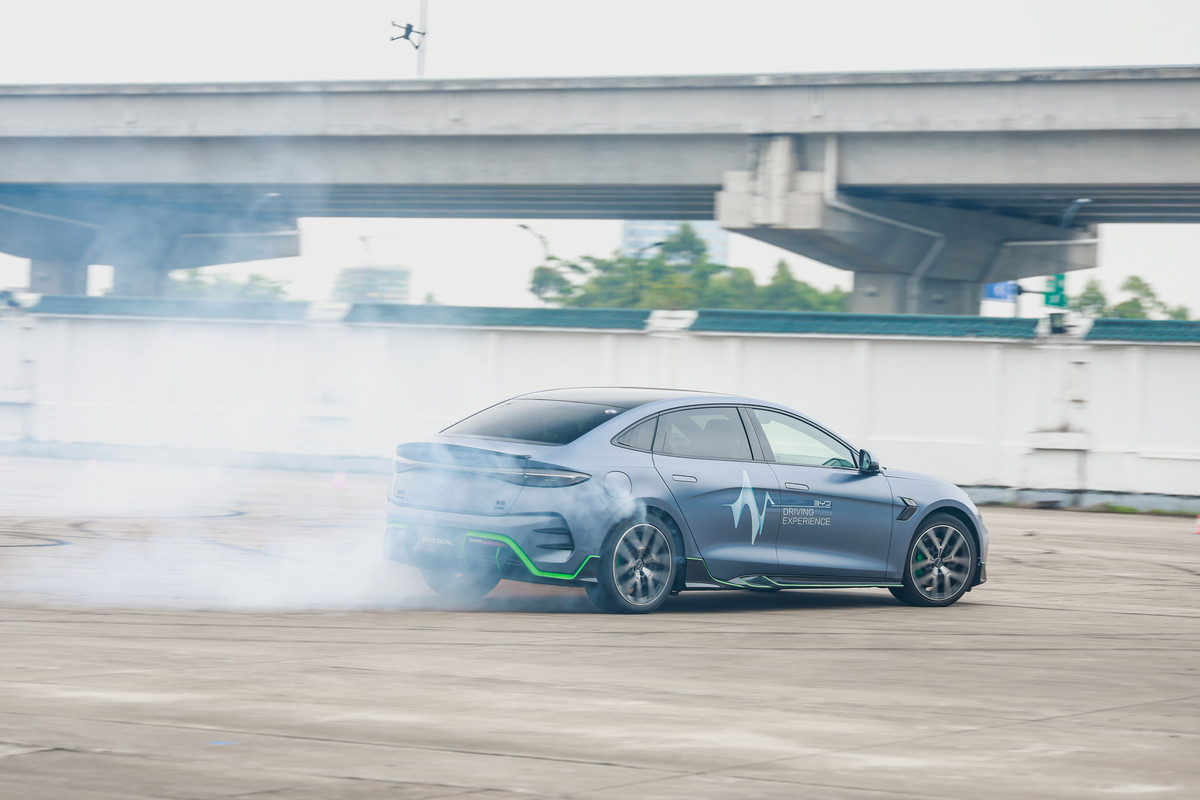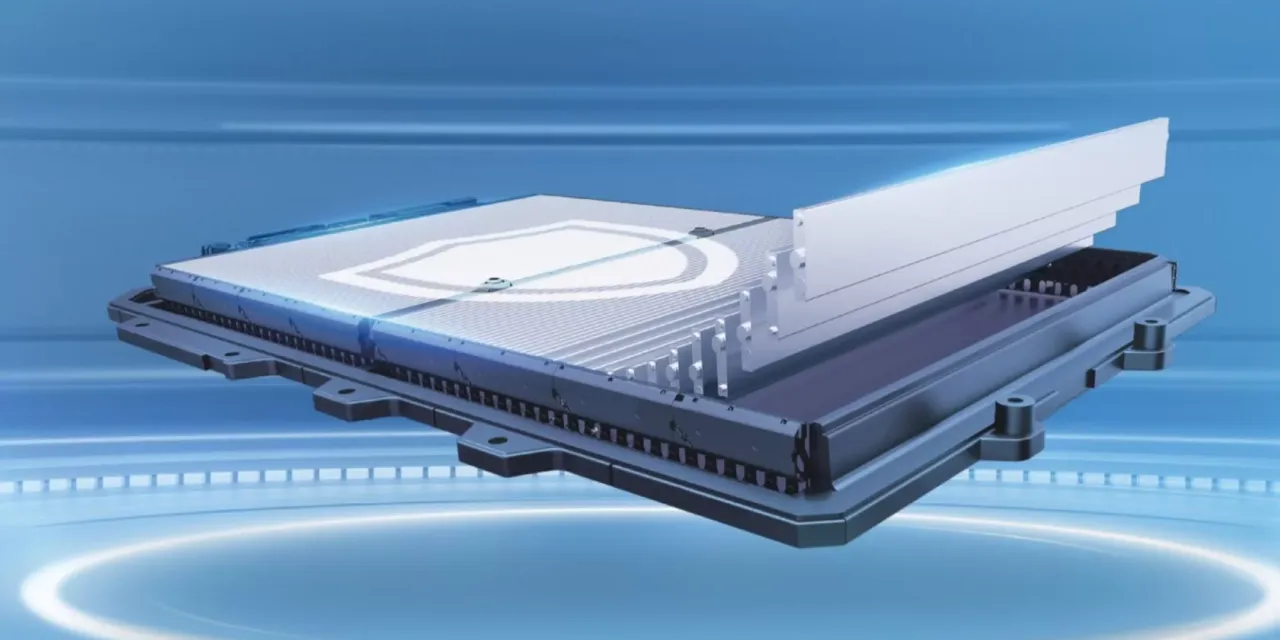We Test Drove BYD SEAL In China & Hit 0-100KM/H In 3.8 Seconds. Here's Our Honest Review
The high-performance electric vehicle (EV) is expected to be launched in Malaysia in the first quarter of 2024.
It's widely acknowledged that electric vehicles (EVs) are now at the forefront of modern automotive innovation.
This recognition is based not only on their environmental advantages, but also on the remarkable speeds they can achieve, all at a fraction of the cost compared to combustion-engine supercars.
Buckle up, because to drive home BYD's "Innovation Meets Acceleration" tagline and introduce you to the wonder of EVs, we're about to embark on a high-octane journey with one of BYD's latest electric marvels, the SEAL.
In October, SAYS was invited to Zhuhai and Shenzhen, China, for a firsthand experience with the BYD SEAL, expected to launch in Malaysia in the first quarter of 2024.
We even had the chance to test drive it on a race track to experience its incredible speed accelerating from 0-100km/h in just 3.8 seconds!
Before we introduce you to the upcoming high-performance sports saloon, here's a brief introduction to BYD.
While Tesla, along with traditional car manufacturers like Volvo and Mercedes-Benz, are often the first brands to come to mind when thinking about EVs, BYD — a Chinese automaker that sold over 1.8 million EVs and plug-in hybrid electric vehicles (PHEVs) in 2022 — is actually the global leader in new energy passenger vehicles.
Tesla's sales were only ahead last year when comparing them in the all-battery electric vehicles (BEVs) segment, and BYD is aiming to dethrone the Texas-based manufacturer in total BEV sales by the end of this quarter.
BYD's history dates back to 1995 when it began manufacturing nickel-cadmium batteries. Since then, the company has expanded into various industries, including automobiles, electronics, and new energy solutions.
In 2015, the company supplied electric buses for Malaysia's BRT–Sunway Line, paving the way for a cleaner, greener future in transportation.
Currently, BYD offers two models in the Malaysian market: the mid-sized electric hatchback Dolphin and the compact crossover sport utility vehicle ATTO 3. Both are priced starting RM99,900 and RM149,800, respectively.
BYD SEAL is the next EV model coming to the Malaysian market.
While Sime Darby Motors, the distributor of BYD in Malaysia, has yet to make an official announcement, it's estimated that the SEAL, available in rear-wheel and all-wheel drive variants, will be priced between RM180,000 and RM220,000.
The BYD SEAL's price range, coupled with acceleration performance comparable to that of the Audi R8 Spyder GT 5.2L V10 or the Aston Martin Vantage Roadster 4.0 V8 Turbo — both costing over RM1 million — sets it apart as possibly the most value-for-money EV in Malaysia.
If you plan on including the BYD SEAL in your EV purchase considerations next year, here is our honest take on the car
From the moment you lay your eyes on the SEAL, its sporty aesthetic screams performance, creating a great first impression, especially when compared to the modest and minimalistic appearance of the Tesla Model 3 in the same segment.
Space Grey, with its sleek sophistication, emerged as our favourite among the available hues – Horizon White, Quantum Black, and Velocity Blue.
Beneath the hood lies a treasure trove of technology, meticulously crafted for both exhilarating driving and superior safety features
For acceleration, this sleek machine is a force of nature, capable of reaching 0-100km/h in a mind-blowing 3.8 seconds. In comparison, the Model 3 all-wheel-drive's official record is 4.4 seconds.
To prove that the speed is not just an on-paper record, BYD took us to Zhuhai International Circuit in China to test the limits of the SEAL to our hearts' content.
The entire experience was an adrenaline rush like no other.
The race track provided a high-standard testing environment, setting us up for a variety of test-driving sessions that included straight-line acceleration, interval slalom, S-curve rollover, and a full track challenge.
At home, I drive a 2018 Honda Civic 1.5L VTEC Turbo (0-100km/h in about 8.4 seconds) and am familiar with the 'G-force' feeling as my body is pushed into the seat during acceleration, albeit to a lesser degree.
The BYD SEAL is on a whole other level. While on the 900m straight stretch, I witnessed the speedometer climb from 0-150km/h in the blink of an eye.
I have almost never driven past 120km/h on Malaysian roads. So, when the BYD-hired racing instructor told me to continue flooring the accelerator when I was at 150km/h, I chickened out.
I let go of the accelerator, fearing I might lose control of the EV at the corner and veer into the trackside grass.
But my fear was unfounded, as the SEAL is more than capable of smooth and safe handling at corners, thanks to its Traction Control System (TCS)
In fact, the brakes were so reliable that cornering became anti-climatic. By just gradually applying the brake pedal and steering the wheel slightly, I could feel the TCS kicked in, causing me to slow down too much and deviate from the racing line at the apex.
But that was clearly a me problem, as professional racers Zhen Zhuowei, Keiichi Tsuchiya, and Nanami Tsukamoto had no problem drifting around corners.
Zhuhai International Circuit wasn't just a backdrop; it was our playground.
All and all, the SEAL's handling was a revelation. It felt nimble and agile, hugging the track like a second skin.
We also pushed every button and explored every feature in the car, realising that it's not just fast but also refined and luxurious. This is unlike some European EV manufacturers that incorporate too many plastic components in the interiors of their cars.
Watch as Keiichi Tsuchiya and Nanami Tsukamoto push the BYD SEAL to its limits in the video below:
So, what sets BYD's battery technology apart from that of its competitors?
We learned all about that during our visit to its headquarters in Shenzhen.
At its on-campus museum, we learned that BYD pioneered the cell-to-body (CTB) battery technology used in its EVs today.
Unlike other manufacturers that use nickel-manganese-cobalt (NMC) batteries, BYD uses Blade Battery, a lithium iron phosphate (LFP) as the cathode material, a more stable and fire-resistant material than the cobalt and nickel found in traditional lithium-ion batteries.
The Blade Battery technology has passed rigorous safety tests, including the Nail Penetration Test, which simulates a nail being driven through the battery.
Below is a video of the same Nail Penetration Test we witnessed on BYD's campus:
BYD's Blade Battery is located below its EVs, forming the cell-to-body (CTB) battery technology.
Image via FuturerideThe SEAL also boasts a driving range of up to 570km on a single charge, which is only about 10% less than the Tesla Model Y's range of 629km.
Often, our decision to purchase one car over another stems from brand biases.
The more we know about or are exposed to a brand, the more likely we are to trust them and become one of their customers.
While it's true that BYD does not get the same fanfare as Tesla in the EV market, which is especially evident in their jaw-dropping valuation gap of over USD649 billion (RM3 trillion), the company is a juggernaut in markets such as its home country China and Thailand.
According to China Global South Project, BYD ATTO 3 took up 31% of Thailand's EV segment less than a year after it launched in October 2022.
Meanwhile, CleanTechnica reported that BYD accounted for 35% of EV sales in China.
In terms of sheer global EV sales in Q3 2023, Tesla sold 435,000 electric cars last quarter, while BYD sold 431,000 units over the same period, leaving a difference of just over 3,000 between the two firms, reported Bloomberg.
Just like Tesla, BYD also dedicated itself to a multitude of corporate social responsibility (CSR) projects, such as pivoting their production lines to churn out millions of face masks to over 80 countries during the COVID-19 pandemic.
It's also a major supplier of electronic buses, delivering more than 78,000 electric buses to more than 70 countries and 400 cities across the globe.
Did you know BYD produces chassis for some of the world's top laptops and mobile phones as well?
Our whirlwind journey with BYD SEAL wasn't just about a thrilling test drive; it was also a glimpse into a future where EVs are more than just eco-friendly alternatives.
Keep an eye out for SAYS Tech to learn about BYD SEAL's specs and prices when it's launched.
